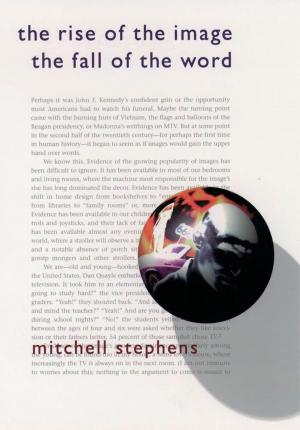Tramps Like Us
Music and Meaning among Springsteen Fans
Nonfiction, Entertainment, Music, Pop & Rock, Rock, Social & Cultural Studies, Social Science, Cultural Studies, Popular Culture, Music Styles| Author: | Daniel Cavicchi | ISBN: | 9780190284329 |
| Publisher: | Oxford University Press | Publication: | October 29, 1998 |
| Imprint: | Oxford University Press | Language: | English |
| Author: | Daniel Cavicchi |
| ISBN: | 9780190284329 |
| Publisher: | Oxford University Press |
| Publication: | October 29, 1998 |
| Imprint: | Oxford University Press |
| Language: | English |
As rock critics have noted in the past, Bruce Springsteen's songs exist in a world of their own--they have their own settings, characters, words, and images. It is a world that even those who know only a handful of Springsteen's lyrics can instantly recognize, a world of highways and factories, loners and underdogs, hot rods and patrol cars. And it is a world that stretches far beyond the New Jersey state line. Indeed, Springsteen's attention to the ideals and struggles of ordinary Americans has significantly influenced American popular culture and public debate. As a rock-and-roll troubadour, "the Boss" speaks not only for his many fans but to them, and often with a directness or sincerity that no other performer can match. But what can be said of the fans themselves? Why and how do they relate to Springsteen's words and music? Based on three years of ethnographic research amid Springsteen's fans, and informed by the author's own experiences and impressions as a fan, Daniel Cavicchi's Tramps Like Us is an interdisciplinary study of the ways in which ordinary people form special, sustained attachments to a particular singer/songwriter and his songs, and of how these attachments function in people's lives. An "insider's narrative" about Springsteen fans--who they are, what they do, and why they do it--this book also investigates the phenomenon of fandom in general. The text oscillates between fans' stories and ideas and Cavicchi's own anecdotes, commentary, and analysis. It challenges the stereotypes of fans as obsessive, delusional, and even mentally ill, and explores fandom as a normal socio-cultural activity. Ultimately, this book argues that music fandom is a useful and meaningful behavior that enables us to shape identities, create communities, and make sense of the world--both Bruce's and our own.
As rock critics have noted in the past, Bruce Springsteen's songs exist in a world of their own--they have their own settings, characters, words, and images. It is a world that even those who know only a handful of Springsteen's lyrics can instantly recognize, a world of highways and factories, loners and underdogs, hot rods and patrol cars. And it is a world that stretches far beyond the New Jersey state line. Indeed, Springsteen's attention to the ideals and struggles of ordinary Americans has significantly influenced American popular culture and public debate. As a rock-and-roll troubadour, "the Boss" speaks not only for his many fans but to them, and often with a directness or sincerity that no other performer can match. But what can be said of the fans themselves? Why and how do they relate to Springsteen's words and music? Based on three years of ethnographic research amid Springsteen's fans, and informed by the author's own experiences and impressions as a fan, Daniel Cavicchi's Tramps Like Us is an interdisciplinary study of the ways in which ordinary people form special, sustained attachments to a particular singer/songwriter and his songs, and of how these attachments function in people's lives. An "insider's narrative" about Springsteen fans--who they are, what they do, and why they do it--this book also investigates the phenomenon of fandom in general. The text oscillates between fans' stories and ideas and Cavicchi's own anecdotes, commentary, and analysis. It challenges the stereotypes of fans as obsessive, delusional, and even mentally ill, and explores fandom as a normal socio-cultural activity. Ultimately, this book argues that music fandom is a useful and meaningful behavior that enables us to shape identities, create communities, and make sense of the world--both Bruce's and our own.















